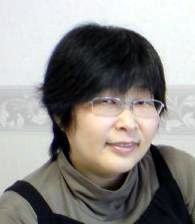This post is part of our special coverage Japan Earthquake 2011
“I’m just like any other person who likes to keep a note of the small details of every day life”, modestly states Mihoko Satou, a Japanese blogger who was born and raised in Brazil, when describing herself. That said, a year ago, following the devastating earthquake in Japan, she demonstrated a level of dedication and persistence which was clearly out of the ordinary.
In March 2011, Mihoko was working as a freelance translator and interpreter of Portuguese and Japanese in Ibaraki, Japan, the birthplace of her parents, which she visited 20 years ago and where she has lived ever since.
It is estimated that there are currently more than 300,000 Brazilians of Japanese descent, or dekasegis, living in Japan. Meanwhile Brazil is home to the largest Japanese population outside of Japan, with more than 1.5 million nikkeis – as the Japanese and their descendants are called.

Mihoko Satou. Image used with permission.
Deeply troubled with the events unfolding around her, including the radioactivity scare and aftershocks which followed in the wake of the disaster, Mihoko decided to reactivate her blog, started in 2009, called Maracujá do Mato [pt]. Here, she tirelessly posted information about the earthquake in Portuguese and was able to dispel inaccurate rumors about what was happening in Japan.
Her blog represented a genuine bridge between Japan and the Portuguese-speaking world, particularly Brazil, as Mihoko explains in an interview with Global Voices:
Resolvi reativar o blog que estava abandonado, com a intenção de passar as informações aos amigos nikkeis (descendentes de japoneses) residentes na região e para tranquilizar os familiares e amigos no Brasil. Pois foi muito grande o susto do mega-terremoto e os tsunamis que assolou a região nordeste no Japão na costa do pacífico, e depois o veio o pânico por causa do acidente nuclear e os rumores que correram mundo afora, com a mídia ocidental alarmado com a situação, pricipalmente por que as informações estavam obscuras sem muitos esclarecimentos. Pela gravidade do acidente, e a usina que ainda não estava estabilizada no momento, achei que seria importante ficar atenta às informações, e procurar esclarecimentos principalmente sobre os riscos da radiação, além de procurar saber o que poderia ser feito dentro do alcance de cada um. No meu caso, pesquisei bastante sobre o assunto para estar ciente do que estava acontecendo.
Concerning the criteria Mihoko used to select which news to translate, she adds:
Eu simplesmente via as notícias que eram do meu próprio interesse para adquirir informações e as traduzia para repassar a quem interessasse. Eram notícias que passavam na TV japonesa, fazia as buscas na internet em jornais on-line e no twitter acompanhava os gorjeio dos especialistas sobre os assuntos que giravam em torno do acidente da usina nuclear de Fukushima. Buscava as notícias e dava uma rápida checada se já não haveria o mesmo assunto circulando no noticiário internacional em português e se tivesse o mesmo assunto, procurava por outra.

"I had initially created my blog with the intention of taking note of the of the small details of every day life, because I like taking photos of flowers". Japan – In Memoriam. Photo by Jônatas Cunha from São Paulo, Brazil, on Flickr (CC BY-SA 2.0)
By sharing the results of her research and publishing the translations on her blog, Mihoko's actions ended up “relieving the distress” of the Portuguese language speakers who were living the consequences of the disaster:
Pois os [brasileiros] que estão aqui no Japão temiam pelo que podia vir a acontecer e apesar de muitos falarem o japonês, a grande maioria não lê o japonês e ficam alheios às notícias locais, se limitando às notícias que são divuldados nos jornais e canais de TV brasileira com algumas horas de atraso. E o objetivo era passar as informações para tentar amenizar a aflição, o medo que a maioria sentia e que eu mesma sentia, sobre o acidente nuclear. Como citei algumas vezes no blog, já que estava aqui mesmo (sem ter para onde correr), procurava as informações e esclarecimentos para tentar me acalmar e simplesmente as dividia com os amigos e conterrâneos.
Currently Mihoko continues to “take note of the details of everyday life”, while establishing links between the two languages and countries, but mostly through Twitter (@ maracujadomato).
Despite the fact that her blogging activity has ceased, Maracujá do Mato remains as a testament to the humanitarian contribution of a blogger who, through her selection of news and its subsequent translation, undoubtably helped to break down language barriers and promote greater dialogue and transnational solidarity by sharing the experiences of, and responses to, a devastating earthquake.
This post is part of our special coverage Japan Earthquake 2011







1 comment